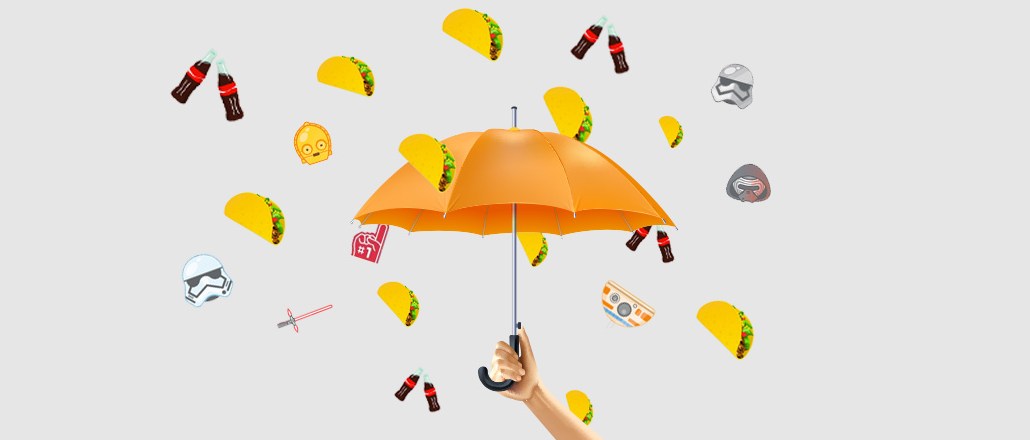
You’re not just imagining things: Brands are using emojis in tweets and Facebook posts more than ever.
Six in 10 of the 500 most followed brands online used emojis in its tweets in the fourth quarter of 2015, according to social media analytics firm SocialBakers. That’s up from the same period in 2014, when four in 10 brands used emoji.
On Facebook, 40 percent of brands used an emoji in the last quarter of 2015, up from 28 percent the year prior. “From a text perspective, Facebook is more long-form type platform,” Jan Rezab, founder of SocialBakers told Digiday explaining why that is. “On platforms like Twitter and Instagram, it’s more normal to use emojis.”
Brands like Coca-Cola have created custom emojis and Domino’s lets users order pizza by tweeting a slice at them. However, in its report, SocialBakers cautioned brands not to overuse them despite its popularity. “As younger audiences fully fluent in integrated emoji-and-characters writing become a larger part of your customer base, brands will need to become increasingly adept at reaching them without being patronizing,” the report said.
SocialBaker’s report mirrors a Simply Measured study, which tracked emoji use on Instagram during the same time finding that brands used emojis in 35 percent of captions. The heart is the emoji that spikes the most engagement, averaging 120,000 likes and comments.
At this rate, the branded emoji bubble may be close to finally bursting. One can only hope.
More in Marketing

Star power, AI jabs and Free Bird: Digiday’s guide to what was in and out at the Super Bowl
This year’s Big Game saw established brands lean heavily on star power, patriotic iconography and the occasional needle drop.

In Q1, marketers pivot to spending backed by AI and measurement
Q1 budget shifts reflect marketers’ growing focus on data, AI, measurement and where branding actually pays off.

GLP-1 draws pharma advertisers to double down on the Super Bowl
Could this be the last year Novo Nordisk, Boehringer Ingelheim, Hims & Hers, Novartis, Ro, and Lilly all run spots during the Big Game?





